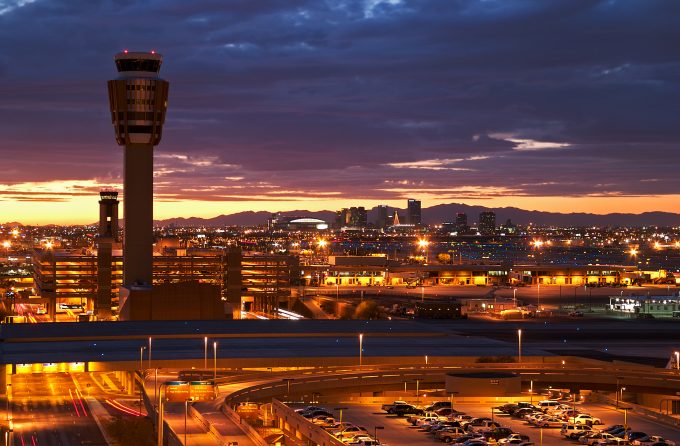US hit by fall in meat exports as China scales back and Brazil steps up
US meat exports are in low gear, affected by bans in the largest market, slowing ...
TFII: SOLID AS USUALMAERSK: WEAKENINGF: FALLING OFF A CLIFFAAPL: 'BOTTLENECK IN MAINLAND CHINA'AAPL: CHINA TRENDSDHL: GROWTH CAPEXR: ANOTHER SOLID DELIVERYMFT: HERE COMES THE FALLDSV: LOOK AT SCHENKER PERFORMANCEUPS: A WAVE OF DOWNGRADES DSV: BARGAIN BINKNX: EARNINGS OUTODFL: RISING AND FALLING AND THEN RISING
TFII: SOLID AS USUALMAERSK: WEAKENINGF: FALLING OFF A CLIFFAAPL: 'BOTTLENECK IN MAINLAND CHINA'AAPL: CHINA TRENDSDHL: GROWTH CAPEXR: ANOTHER SOLID DELIVERYMFT: HERE COMES THE FALLDSV: LOOK AT SCHENKER PERFORMANCEUPS: A WAVE OF DOWNGRADES DSV: BARGAIN BINKNX: EARNINGS OUTODFL: RISING AND FALLING AND THEN RISING

Domestic US air freight prices could rise if the proposal to privatise air traffic control (ATC) becomes law.
Regional air cargo carriers are concerned that the plans could lumber them with disproportionately higher costs, while bestowing little tangible benefit. And those costs, they warn, would be passed on to customers.
The US administration seems bent on taking ATC out of the purview of the Federal Aviation Administration (FAA) and handing it over to a non-government operator by 2021.
Republican congressman Bill Shuster has led the charge, arguing that ATC modernisation is imperative, as the current set-up is woefully inadequate to meet the needs of the 21st century.
A key plank in this is the restructure of the FAA, which Mr Shuster has described as the highest priority, in particular handing ATC to a private operator.
According to Mr Shuster, this will result in a safer and more efficient system that can deliver more on-time departures, more direct routes and less wasted time on the ground. He claims the current inefficiencies cost US taxpayers $30bn a year.
Airlines For America, the lobby group of the large US carriers, has thrown its weight behind the initiative and reiterated this argument about the perceived benefits of ATC privatisation. However, a broad coalition of local governments and airports has voiced its opposition to the proposal.
The Alliance for Aviation Across America has warned that in a privatised environment, industry taxes and fees would be tailored to benefit industry stakeholders (especially the large airlines) rather than the public good, threatening access to rural areas that depend on air transport.
And it argues that privatising air traffic would increase the national deficit by $46bn over the next decade.
The Regional Air Cargo Carrier Association (RACCA) is also opposed to ATC privatisation, fearing higher costs for its members.
RACCA president Stan Bernstein noted that a lot of his members’ flights that feed integrator networks happen late at night, when the system is less strained. “A more efficient system is not much of a benefit for us,” he said.
This makes the prospect of higher costs all the less palatable. Private operators tend to be more efficient, but the additional cost would be significant, Mr Bernstein added.
RACCA is also concerned that the large airlines will use their heft to bring down ATC charges, which would likely prompt private operators to try and recoup some of that lost income through higher levies on smaller carriers.
“We would have no choice but to pass that on to our customers,” Mr Bernstein said.
Empire Airlines is one of the largest members of the RACCA, operating 37 Cessna Caravans and 18 ATR 42s and 72s for FedEx. Its size, and the terms of its contract, give the carrier some protection against higher ATC charges. Still, company president and CEO Tim Komberec can relate to the angst that smaller outfits in the association are experiencing.
“For the average RACCA carrier with smaller plans and smaller operations, how the cost will shift is a great concern for them,” he said.
Already operators are burdened with the costs associated with the preparations for the NextGen ATC system that is scheduled to come onstream in 2020, Mr Bernstein pointed out.
Mr Komberec said: “It’s a substantial investment. It varies with aircraft type, but it’s not an insubstantial amount for us.” He added that he had no clear indication how much benefit NextGen would bring to Empire.
The company is on track to complete its preparations for the new system in time, as are most RACCA members, according to Mr Bernstein.
“The consensus is that the industry will be ready. The question is if the government will be ready,” he said, noting that NextGen has struggled with timelines and budgets.
Observers believe the current push for ATC privatisation has more momentum than ever before.
“It seems to have more legs than the status quo, but there are still a lot of questions,” said Mr Komberec.
A recent survey found that 53% of the American public regards ATC privatisation as a bad idea, while 33% expressed support. This hardly seems an issue that would ignite great popular indignation if the government were to go ahead regardless. Still, populist leaders can be jumpy when they find themselves on a collision course with popular opinion.
Comment on this article